|
When I was in 8th grade, I helped teach for my parish’s religious education program and counted the hours toward my required community service time before receiving the Sacrament of Confirmation. I was an assistant for the 5th grade, and I thought it was the coolest thing. I could share with the class what I knew about the Church, even teaching them at one point how to pray the Rosary. Looking back, it seems like I was destined to teach in a Catholic school! After college, I began working at my current school in the Archdiocese of Washington (ADW), where I continue to teach and share my faith with the students. To this day, I continue to teach religion. I strive to form my students as disciples according to six elements of Catholic life: Knowledge of the Faith, Liturgy and Sacraments, Morality, Prayer, Education for Living in Christian Community, and Evangelization and Apostolic Life.
For catechists who actively pass on the Word of God to others, teaching the faith can become almost second nature. For instance, at my school, we incorporate core Jesuit principles into the curriculum each day and reflect on our own actions through prayer. In my pre-K classroom, we use these principles to talk about kindness and loving others as St. Ignatius taught. In a special way, my students are learning how to be good friends and love others the way Jesus did. In the Archdiocese of Washington (ADW), the religious curriculum has standards by which its content is measured and assessed—like any other subject area in school. In fact, ADW is trying to support catechists to do more to collaborate and keep kids engaged and excited about learning their faith. Professional development of catechists is crucial to a school, parish, or community. Learning how to be better witnesses of the faith ensures that our children are receiving the best formation of conscience they can get. Although there are people certified and educated to teach as catechists, most of us are already fulfilling that duty as faith-filled adults in the Church who witness to and spread the Gospel. Below is a list I have compiled of a description of a catechist. After reading it, do you feel called to become one?
For more information, we invite you to view the following webinar at the bottom of the page:
Question for Reflection: How can you teach the faith to others in your everyday life? *This post was originally published in May 2017*
0 Comments
5/9/2018 Everyday Holiness (Part 2): 10 Quotes from Pope Francis' Apostolic Exhortation to Help You Be Holy in Today's WorldRead NowOn April 9, the Solemnity of the Annunciation of the Lord, Pope Francis released his latest Apostolic Exhortation: Gaudete et Exsultate (Rejoice and Be Glad): On the Call to Holiness in Today’s World. This is the third Apostolic Exhortation of his papacy, following Evangelii Gaudium, the Apostolic Exhortation on the Proclamation of the Gospel in Today’s World and Amoris Laetitia, a post-synodal Apostolic Exhortation on Love in the Family. What was his goal? “To re-propose the call to holiness in a practical way for our own time, with all its risks, challenges and opportunities" (GE 2). Without delving too much into a theological or heady definition of holiness, Pope Francis invites us simply and straightforwardly to open ourselves to the specific and unique mission God has created us for. In this, he says, lies true joy and freedom. Our Holy Father takes us back to the Source of Holiness, Jesus Christ, and encourages us to look to the Beatitudes as guides for holiness. Below, I’ve compiled some of my favorite quotes and key take-aways from this approachable, yet profound, exhortation. 1.“A person’s perfection is measured not by the information or knowledge they possess, but by the depth of their charity.”-GE 37 It is tempting to leave the task of holiness to theologians, the clergy, or those who work for the institutional Church. Here, Pope Francis reminds us that holiness is not all about intellectual knowledge, our ability to quote the latest Church document, or the Catechism. While knowledge of the Faith certainly is important, our holiness is measured by the amount of love with which we infuse all of our actions. I can’t help but think of St. John of the Cross’s quote: “In the twilight of life, God will not judge us on our earthly possessions and human successes, but on how well we have loved. 2. “Jesus explained with great simplicity what it means to be holy when he gave us the Beatitudes (cf. Mt 5:3-12; Lk 6:20-23). The Beatitudes are like a Christian’s identity card…In the Beatitudes, we find a portrait of the Master, which we are called to reflect in our daily lives.” -GE 63 I love that Pope Francis ultimately leads us to Scripture and to Jesus Christ Himself as the model and teacher of holiness. It can get overwhelming trying to be holy and define holiness in our modern world. The Beatitudes, Pope Francis says, are like a “Christian’s identity card.” They point us directly to holiness and guide us along the way. Spending time reflecting on each of the Beatitudes will help us to better understand what it means and looks like to be holy. 3. “It is true that the primacy belongs to our relationship with God, but we cannot forget that the ultimate criterion on which our lives will be judged is what we have done for others. Prayer is most precious, for it nourishes a daily commitment to love. Our worship becomes pleasing to God when we devote ourselves to living generously, and allow God’s gift, granted in prayer, to be shown in our concern for our brothers and sisters.” –GE 104 Here, Pope Francis is reminding us that our prayer must lead to action. We cannot be holy in a vacuum, but are called to live out holiness amidst our brothers and sisters. Service to the world, as promoted by Catholic Social Teaching, is crucial if we are to be true followers of Christ. While our relationship with God always comes first, this relationship turns our gaze outward in order to foster and build relationships of love, service, and communion with our brothers and sisters. 4.“Far from being timid, morose, acerbic or melancholy, or putting on a dreary face, the saints are joyful and full of good humour. Though completely realistic, they radiate a positive and hopeful spirit.” -GE 122 Holiness leads to joy – this is the true fruit of our living a holy life. As Christians, we are called to exude the joy of the Resurrection and of the Gospel in the midst of a world plagued by sin, brokenness, and suffering. While holiness is joyful, is does not exist in an alternate reality, but embraces the truth of the world in which we live. Pope Francis says that this holiness is “realistic” and allows us to engage the world while still looking beyond it to the glory of eternal life. 5. “God is eternal newness. He impels us constantly to set out anew, to pass beyond what is familiar, to the fringes and beyond. He takes us to where humanity is most wounded... God is not afraid! He is fearless! He is always greater than our plans and schemes. Unafraid of the fringes, he himself became a fringe (cf. Phil 2:6-8; Jn 1:14). So if we dare to go to the fringes, we will find him there; indeed, he is already there.” –GE 135 The theme of going outside our comfort zone has been one Pope Francis has promoted since the beginning of his papacy. He calls us as Christians and as the Church to wake up, open our doors, and shake the dust off ourselves by imitating God who is “eternal newness.” Holiness, therefore, means being active, bold, and unafraid. It means meeting Christ in the fringes of society and finding him outside the confines of our Church walls. 6.“Let us allow the Lord to rouse us from our torpor, to free us from our inertia. Let us rethink our usual way of doing things; let us open our eyes and ears, and above all our hearts, so as not to be complacent about things as they are, but unsettled by the living and effective word of the risen Lord.” –GE 137 Here, Pope Francis continues to invite the Church to an examination of conscience. Are we doing things out of habit, because we’ve always done something a certain way, or are we open to the promptings and workings of the Holy Spirit as we approach our task of holiness and evangelization? The example and word of Jesus Christ should always “unsettle” us to some degree. We do not achieve perfect holiness at some point in our life and then rest on our haunches! The journey lasts throughout our lifetime. 7.“Are there moments when you place yourself quietly in the Lord’s presence, when you calmly spend time with him, when you bask in his gaze? Do you let his fire inflame your heart? Unless you let him warm you more and more with his love and tenderness, you will not catch fire. How will you then be able to set the hearts of others on fire by your words and witness? If, gazing on the face of Christ, you feel unable to let yourself be healed and transformed, then enter into the Lord’s heart, into his wounds, for that is the abode of divine mercy.” -GE 151 I love this passage from Gaudete et Exsultate. Pope Francis takes on a more reflective tone here and invites us to be prayerful along our journey to holiness. He gets to the heart of holiness by asking us some profound but unavoidable questions. Essentially, he’s asking if we have truly encountered Jesus Christ and his infinite love. This is fundamental to holiness, for our encounter with Christ’s love is what will carry us forward on our journey and sustain us. Take some time to pray with these questions and ask the Lord for a deeper encounter with his love. 8.“For this spiritual combat, we can count on the powerful weapons that the Lord has given us: faith-filled prayer, meditation on the word of God, the celebration of Mass, Eucharistic adoration, sacramental Reconciliation, works of charity, community life, missionary outreach. If we become careless, the false promises of evil will easily seduce us.” –GE 162 As with any journey, we will encounter setbacks and temptations as we strive for holiness. Pope Francis devotes a section of his exhortation to the reality of evil and our need to acknowledge it. Pursuing holiness also means engaging in spiritual combat. We not only face our own weaknesses or the sins of others, we also face an actual opponent: the devil. Here, Pope Francis encourages us to count on “the powerful weapons that the Lord has given us.” We are not alone as we face evil, but find our strength in the Church, the sacraments, our brothers and sisters, etc. 9. "Discernment is necessary not only at extraordinary times, when we need to resolve grave problems and make crucial decisions. It is a means of spiritual combat for helping us to follow the Lord more faithfully. We need it at all times, to help us recognize God’s timetable, lest we fail to heed the promptings of his grace and disregard his invitation to grow." –GE 169 Discernment is a way of life. It means inviting the Lord into our actions and decisions and asking for his guidance as we go about our day. Pope Francis reminds us that discernment is not reserved only for major life decisions such as a move, our vocation, a job opportunity, etc. Discernment should be engrained into our spiritual life and helps to ensure that we are living our lives according to God’s plan rather than our own. 10.“Mary is the saint among the saints, blessed above all others. She teaches us the way of holiness and she walks ever at our side. She does not let us remain fallen and at times she takes us into her arms without judging us. Our converse with her consoles, frees and sanctifies us.” -GE 176 We cannot pursue holiness without looking to the perfect model of human holiness: the Blessed Virgin Mary. Pope Francis concludes his exhortation by inviting us not only to look to Mary, but to go to her and build a relationship with her. She always guides us closer to her Son. Mary is a gift to us given by Christ himself to journey alongside us on the path to heaven, don’t forget to use her as a resource! **This is part two of a two-part series of quotes from Pope Francis’ latest Apostolic Exhortation: Gaudete et Exsultate. For more information and resources on Gaudete et Exsultate, please click here. Questions for Reflection: How does Pope Francis challenge your idea of holiness? Do you agree with the Holy Father’s definition? Where do you see holiness being lived out today? 5/1/2018 Everyday Holiness: Ten Quotes from Pope Francis’ Apostolic Exhortation to Help You Be Holy in Today’s WorldRead NowOn April 9, the Solemnity of the Annunciation of the Lord, Pope Francis released his latest Apostolic Exhortation: Gaudete et Exsultate (Rejoice and Be Glad): On the Call to Holiness in Today’s World. This is the third Apostolic Exhortation of his papacy, following Evangelii Gaudium, the Apostolic Exhortation on the Proclamation of the Gospel in Today’s World and Amoris Laetitia, a post-synodal Apostolic Exhortation on Love in the Family. What was his goal? “To re-propose the call to holiness in a practical way for our own time, with all its risks, challenges and opportunities" (GE 2). Without delving too much into a theological or heady definition of holiness, Pope Francis invites us simply and straightforwardly to open ourselves to the specific and unique mission God has created us for. In this, he says, lies true joy and freedom. Our Holy Father takes us back to the Source of Holiness, Jesus Christ, and encourages us to look to the Beatitudes as guides for holiness. Below, I’ve compiled some of my favorite quotes and key take-aways from this approachable, yet profound, exhortation. 1.“The Lord asks everything of us, and in return he offers us true life, the happiness for which we were created. He wants us to be saints and not to settle for a bland and mediocre existence.” -GE 1 Pope Francis echoes his predecessors in reminding us that following Christ leads to an abundant, joyful, and exciting life. We often do not equate holiness to greatness, but that’s what it is. Though God expects a lot from us, he gives us so much more: true life and happiness. Our Holy Father is reminding us that holiness makes us truly happy by calling us to live abundantly. 2. Holiness is the most attractive face of the Church. -GE 9 Many of us might have grown up thinking that holiness is boring and that sanctity is impossible, so why is Pope Francis saying that holiness is the most attractive face of the Church? What does this mean? When we embrace holiness, we become who we were created to be; we become our most authentic selves. This authenticity, this freedom, is attractive. It makes the Church come alive through each of her members. When we are striving for holiness, we are becoming our best and most loving selves. This witness is what evangelizes – it invites others to pursue their own journey of holiness. 3.The important thing is that each believer discern his or her own path, that they bring out the very best of themselves, the most personal gifts that God has placed in their hearts (cf. 1 Cor 12:7), rather than hopelessly trying to imitate something not meant for them. We are all called to be witnesses, but there are many actual ways of bearing witness. -GE 11 Oftentimes, it’s easy to compare ourselves with others. It’s tempting to see the gifts and talents of others and ask ourselves why we do not have the same. The Body of Christ is made up of all different parts – each necessary for the functioning, health, and well-being of the body itself. Here, Pope Francis reminds us that there are as many paths to holiness as there are people. Each of us was designed specifically by God for a unique purpose. We do not have to become St. Francis, St. Vincent Pallotti, St. Mother Teresa, St. Joan of Arc, or St. Francis de Sales. We become saints by becoming most fully and authentically who God made us to be: ourselves. 4.To be holy does not require being a bishop, a priest or a religious. We are frequently tempted to think that holiness is only for those who can withdraw from ordinary affairs to spend much time in prayer. That is not the case. We are all called to be holy by living our lives with love and by bearing witness in everything we do, wherever we find ourselves. – GE 14 In this passage, Pope Francis reminds us of the universal call to holiness which has its inception in the Gospel and which the Church has explicitly reminded us since the closing of the Second Vatican Council. Holiness is not reserved for those with theology degrees, the ordained, monks, or religious. It is not reserved for those who work for the Church or volunteer with acts of service. It is for each and every one of us: the high school student studying for exams, the single parent, the politician developing laws for his or her constituents, the factory worker, the refugee far from home, the married couple starting or raising a family, the list goes on and on. Whatever vocation, profession, or place in life we find ourselves in, let us infuse it with love in order to become holier each and every day. 5.In the Church, holy yet made up of sinners, you will find everything you need to grow towards holiness. The Lord has bestowed on the Church the gifts of scripture, the sacraments, holy places, living communities, the witness of the saints and a multifaceted beauty that proceeds from God’s love, “like a bride bedecked with jewels” (Is 61:10). -GE 7 Sometimes the journey of holiness seems impossible. We can get tired and beaten down by our own weaknesses and failures, and by the multitude of temptations and trials that seem to present themselves at every step. Here, Pope Francis is reminding us that Jesus Christ gives us everything we need to be holy. Our growth in holiness cannot exist apart from Christ’s Church. Though the Church is not perfect, it is in the Body of Christ that we have access to Scripture, the sacraments, and community, so that we can have the help of others who are also striving for holiness. Do not forget to use these invaluable resources, to go back often and drink from the well of life, in order to get the strength you need to continue your journey of holiness. 6. This holiness to which the Lord calls you will grow through small gestures. -GE 16 This quote reminds me of the often-referred to statement of St. Mother Teresa: “…do small things with great love.” Holiness does not happen overnight. It involves millions of decisions and actions – each one leading us closer to or further away from our goal. Pope Francis reminds us that we are called to grow in holiness in a way that may seem small and ordinary. Cleaning a dish can become an act of holiness—so can changing a diaper, writing a paper, tending a garden, submitting a work report, or sitting in traffic. Greatness, then, lies in the little things. This is the little way St. Therese of Lisieux shared with the Church. It can lead to great sanctity. 7.Each saint is a mission, planned by the Father to reflect and embody, at a specific moment in history, a certain aspect of the Gospel…Every saint is a message which the Holy Spirit takes from the riches of Jesus Christ and gives to his people. -GE 19, 21 Each of us are a product of our times. We were born at a specific time and place in order to live out a specific mission. We don’t often think ourselves as “a mission,” as Pope Francis says, or as “a message,” but these are beautiful ways to think about our lives and the weight and dignity of each one. By thinking about our lives in this way, we see that each of us is planned by the Father at this exact moment in time and that our lives, actions, and interactions with others are invaluable. If we do not share the message God created us to impart, no one else will. 8.Just as you cannot understand Christ apart from the kingdom he came to bring, so too your personal mission is inseparable from the building of that kingdom…Your identification with Christ and his will involves a commitment to build with him that kingdom of love, justice and universal peace. -GE 25 After Christ’s Resurrection and before his Ascension into heaven, he gave his disciples a clear command: “Go, therefore, and make disciples of all nations, baptizing them in the name of the Father, and of the Son, and of the holy Spirit.” The same commission resounds for us today. Jesus came not only to overcome sin and death, but to build his kingdom on earth. For this reason, Pope Francis reminds us that we “cannot understand Christ apart from [his] kingdom.” Before joining Christ in Heaven, we’ve got work to do. We join Christ in his mission by working to create a world of “love, justice and universal peace.” Holiness, therefore, is not for us alone, but for society, for others, and for the world. 9.The presence of constantly new gadgets, the excitement of travel and an endless array of consumer goods at times leave no room for God’s voice to be heard…Sooner or later, we have to face our true selves and let the Lord enter. -GE 29 The world today is an incredibly noisy place. Our access to technology enables us to be plugged in at almost every moment of the day. We see screens on our computers, smartphones, and televisions; we are bombarded by advertisements; we spend hours on social media. Without demonizing technology or refuting its benefits, Pope Francis reminds us of the temptation to drown out the voice of God with noise. If we are unable to hear the voice of God, then we will be unable to attain the holiness to which we are called. How can we carve out more time for God today in silence and in prayer? 10.Do not be afraid of holiness. It will take away none of your energy, vitality or joy. On the contrary, you will become what the Father had in mind when he created you, and you will be faithful to your deepest self. To depend on God sets us free from every form of enslavement and leads us to recognize our great dignity. -GE 32 Our world often views holiness as boring, enslaving, or downright impossible. Here, Pope Francis beautifully reminds us that holiness leads to true authenticity and freedom. Rather than limit our lives or diminish them with rules, regulations, and boredom, holiness leads to joy and vitality. Embracing who we were made to be leads to true happiness and satisfaction, rather than chasing the empty things of this world or trying to be who we are not. Let us not fear holiness, but strive for it wholeheartedly! **This is part one of a two-part series of quotes from Pope Francis’ latest Apostolic Exhortation: Gaudete et Exsultate. For more information and resources on Gaudete et Exsultate, please click here. Questions for Reflection: Do these quotes from the Holy Father surprise or excite you? How has your perspective of holiness changed after reading some of these words from Pope Francis? “Blessed Paul VI, in referring to obstacles to evangelization, spoke of a lack of fervor (parrhesía) that is ‘all the more serious because it comes from within’. How often we are tempted to keep close to the shore! Yet the Lord calls us to put out into the deep and let down our nets (cf. Lk 5:4). He bids us spend our lives in his service. Clinging to him, we are inspired to put all our charisms at the service of others. May we always feel compelled by his love (2 Cor 5:14) and say with Saint Paul: ‘Woe to me if I do not preach the Gospel’ (1 Cor 9:16).” – Pope Francis, Gaudete et Exsultate, 130.
In the passage above from Gaudete et Exsultate (Rejoice and Be Glad), an apostolic exhortation on the “call to holiness in today’s world,” Pope Francis offers a concise summary of over forty years of papal teaching on evangelization as well as over two thousand years of the Church’s missionary efforts of the baptized going forth to all in word and deed in the name of Jesus Christ. Over fifty years since the close of the Second Vatican Council, the teaching that holiness is possible for all (Lumen Gentium, 11) or the “universal call to holiness,” seems to be still a teaching that is not fully received by all the baptized, partially because of an understanding on the part of some that growth in holiness needs a special and particular way or is only possible for certain people. Pope Francis disagrees with this view: “We are frequently tempted to think that holiness is only for those who can withdraw from ordinary affairs to spend much time in prayer. That is not the case. We are all called to be holy by living our lives with love and by bearing witness in everything we do, wherever we find ourselves” (GE, 14). But, just what is “holiness?” Pope Francis offers a definition of Pope Emeritus Benedict, “holiness is charity lived to the full” (GE, 21). It is the charity of Christ living in and through us. Pope Francis, continuing to quote Pope Benedict, provides further reflection: “As a result, ‘the measure of our holiness stems from the stature that Christ achieves in us, to the extent that, by the power of the Holy Spirit, we model our whole life on his’” (GE, 21) Modelling our “whole life on his” needs to be done through moving outward on mission (EG 18-34) in mercy and love toward our brothers and sisters who are near us every day (GE, 63-109). It is done through our discernment (GE, 166-175), prayer, and worship (GE, 147-157) in the community of faith, the Church (EG, 140-146), resisting evil and doing good (GE, 158-165). “Accepting daily the path of the Gospel, even though it may cause us problems: that is holiness.” (GE, 94). May the Charity of Christ urge us on! (2 Cor 5:14) It’s Holy Saturday. Jesus is dead; a boulder is in front of the tomb, and it is sealed. He is gone. So now what? What next? On Holy Saturday, my thoughts are with the apostles. Although Jesus foretold of his death, I’m not sure that they actually believed him or that they imagined it would consist of the sacrifice on the Cross. But Holy Saturday is when the reality hits them. Just imagine the millions of questions that they must have had. I imagine that they were similar to the ones above. “Now what? What next?” Imagining the disciples left with these unsolved questions, I start to realize that I too have had some questions when the going got tough or when I faced challenges, like on a recent mission trip. A few weeks ago, I had the privilege of accompanying 18 students from The Catholic University of America and two other staff members to the island nation of Jamaica for an alternative spring break cultural immersion trip. While in Jamaica, we visited several sites run by organizations like the Missionaries of Charity, the Missionaries of the Poor, and the St. Patrick’s Foundation. The most impactful day for me was the one I spent at Bethlehem House. Bethlehem House is a home for children with severe mental and physical disabilities. Of the eighty children who live there, only about twenty receive the occasional visit from their families. The rest of the children likely never see their families again. Most of them will also never be able to live on their own without significant medical assistance. The missionary in charge of the home asked if I would work with the older children, telling me that these children get the fewest visitors either by family members or by outside groups. “They need your love more than anyone else here,” he told me as he dropped me off in the room. It was just me, a caretaker (who only spoke Patois, a native language of Jamaica that is a mix of Scots and Creole) and the children. For the first hour, I didn’t know what to do. I was dumbfounded, heartbroken, and depressed by their situation. I could barely even crack a smile, let alone laugh. I didn’t understand the joy that others had talked about working with this group of children. I was aimlessly walking around the room, wondering, “What next?”. As one hour turned into two, one of the children woke up from a nap. He shouted from across the room “Hey! Hey you!” I looked at him and he said, “Come here and pick me up!” Still dumbfounded, I walked over to his crib and picked him up. He quickly told me that his name was Ashanti. Ashanti was one of the few children who was able to have a full conversation. He had such severe scoliosis that he was paralyzed from the waist down and had a lump in his back. Ashanti also had an enlarged, misshapen head. After about five minutes of walking around and talking with me, he grabbed my beard and declared that I was his best friend. He smiled and let out the most infectious laugh I have ever heard! In that moment, I knew that I was not looking just at Ashanti’s face, but at the very face of Jesus laughing and expressing joy. I learned more about love in those five minutes then I had learned in years. The rest of my day at Bethlehem House was full of joy, even in the midst of such extraordinarily difficult circumstances. In reflecting about that day, I think about the apostles on Holy Saturday who had locked themselves away in the Upper Room, unsure of what was next. They wondered and waited. But Easter did come, and their joy returned. The face of Jesus did appear again, just as it had for me in my experience with Ashanti. After Easter and with that joy, the apostles went out into the world proclaiming the Gospel. We too are called to encounter Christ in the joy of Easter and spread the Gospel message. More often than not, our days are like Holy Saturday. We experience days when all seems lost and hope seems foolish. But we must resist that temptation, resist the idea that hope will not return, that joy is lost forever. We know that Easter is coming and will always come. Joy will have its triumph. And it can be shared and experienced by all those we encounter. So on this Holy Saturday, let us be like the apostles and go out into this world after experiencing the joy that awaits us on Easter Sunday! For more Lenten and Easter resources, please click here. “But this I will call to mind; therefore I will hope: The Lord’s acts of mercy are not exhausted, his compassion is not spent; They are renewed each morning—great is your faithfulness!”
-Lamentations 3:21-24 Reflecting on the theme for this year’s Mid-Atlantic Congress—"Hope”—I feel as though the idea of hope seems a radical one to even consider today. Every morning, we’re confronted with more bad news: refugees, war, political espionage, starvation, violent crime, and even mass shootings in our own communities. It’s enough to make you throw up your hands and cry out, “Just make it stop!” And that’s exactly why we need hope. With the current state of the world, focusing on the theme of hope is one of the most important things we can do as a community of faith. We often hear that things are in crisis: the family, the Church, our nation, our whole world. But what we encountered at MAC this year looked nothing like crisis. In fact, it looked very much like hope. In our conversations with participants, the Catholic Apostolate Center staff witnessed a fire that, in charity and love, seeks to transform the world with the good news of the Gospel. And while it’s easy to get caught up in the excitement of being surrounded by passionate and hard-working people, there are ways we can carry that hope and momentum forward into our parishes and communities. The Catholic Apostolate Center participated in four presentations this year at the Mid-Atlantic Congress. In our presentation discussing Living as Missionary Disciples, the U.S. Bishops’ guide for pastoral planning, we were able to provide basic principles of missionary discipleship and evangelization. We talked about where the Church in the United States is heading with its evangelization and pastoral planning efforts and together brainstormed practical ways to implement these ideas in our own parishes and dioceses. By collaborating with other members of the Church, and helping to form missionary disciples, our work can change the narrative of hopelessness we often see in the world. The Center also engaged in fruitful conversation about how to equip young adults to enter into the mission the Church calls us to: becoming missionary disciples, or everyday evangelizers. The session highlighted work being done in several archdiocesan and post-collegiate formation programs, such as Apostles on Mission. We also reflected on the importance of fostering a greater sense of vocational discernment among young adults—a theme on which the Church will continue to reflect in the upcoming Synod on Young People, the Faith, and Vocational Discernment. Regarding our schools, the Center had the opportunity to reflect on the complexities of the role of principals as Lay Ecclesial Ministers. Acting as part-administrator, teacher, janitor, crying shoulder, cheerleader, and lunch monitor, a principal is also a school’s connection to the local parish and diocese. They take on a complex role in today’s world and, from the discussion in our session, are eager to renew their commitment to helping form the next generation of missionary disciples. Finally, the Center unpacked the idea of collaboration from the beginning as it can apply to pastoral planning. With so many new (rather, renewed) ideas being proposed by Pope Francis and the bishops, wrapping one’s head around the various buzz words, new terminology, or different pastoral methodologies can seem overwhelming. Our conversation touched on co-responsibility, missionary discipleship, and entering into pastoral planning with a spirit of discernment and collaboration. It was encouraging to see pastoral leaders rising to the challenge of being co-responsible missionary disciples ready to share the hope of Jesus Christ. At MAC this year, we experienced hope: hope in the Lord, hope that will not disappoint, and hope that sends us forth. We saw the excitement and fire that comes from hope, which will be taken home to our parishes, schools, and dioceses to transform the world. We thank all who engaged in conversation with us at MAC and challenge you to proclaim the hope of the Gospel to the world. To listen to our presentations from this year’s Mid-Atlantic Congress, please click here. In today’s Gospel, Jesus turns to Peter saying, “Blessed are you, Simon son of Jonah. For flesh and blood has not revealed this to you, but my heavenly Father. And so I say to you, you are Peter, and upon this rock I will build my Church…” On the Sea of Galilee, Peter is marked as the shepherd of the Church. He began as Simon son of Jonah, an unlikely character, a fisherman. Now he will be the leader of the followers of Christ. As the Catechism of the Catholic Church states, “[Jesus] gave him the keys of his Church and instituted him shepherd of the whole flock.” We celebrate this sublime moment today on the Feast of the Chair of St. Peter, praying in a special way for the pope—St. Peter’s successor—and also all clergy, bishops, priests, and deacons who continue to shepherd Christ’s flock. Why celebrate a chair? The physical Chair of Peter is fixed in the Basilica of St. Peter in Rome, but it is a physical symbol that communicates a spiritual reality. Pope Emeritus Benedict gave a concise homily on its significance in 2006, explaining that each bishop sat on a cathedra (his established seat) when entrusted with a specific church. It was not only the place Peter would have sat as bishop, but also where he would have taught, preached, and carried out his priestly tasks. Peter once held a physical space, much like a solitary shepherd who stands with his staff and provides for the sheep he serves. And over time, the chair has been broken, worn, and recreated as a symbol of the apostle’s works. As Peter went from Simon to the rock, petra, the chair became cathedra, the bishop’s seat. Pope Benedict XVI continued in his homily, “the Chair of the Bishop of Rome represents not only his service to the Roman community but also his mission as guide of the entire People of God.” The Chair of St. Peter, therefore, points to the Eternal Good Shepherd: Christ himself. Jesus instituted the papacy knowing of Peter and his future successors’ humanity. Peter was passionate, dramatic, foolish and courageous. He both loved and held a deep respect for Jesus, but would later betray his friend during his Passion. Yet Peter was also the first of the apostles to profess: “You are the Christ, the Son of the living God” (Matthew 16:16). It is for this reason that Jesus replied to him, “you are Peter, and upon this rock I will build my Church.” God works within the brokenness of our humanity and invites us to sanctity, just as he did with Peter. Peter went from a man who betrayed Christ to a martyr who died for him. As the first pope, he became a great leader and model despite his human imperfection. In addition to the humanity of Peter, the Chair also reminds us of the call to holy leadership and is a sign of the grace given by God to those whom he calls, especially in the Sacrament of Holy Orders. The Catechism states, “Just as ‘by the Lord's institution, St. Peter and the rest of the apostles constitute a single apostolic college, so in like fashion the Roman Pontiff, Peter's successor, and the bishops, the successors of the apostles, are related with and united to one another." On this Feast, let us remember to pray for our pope and for all our church leaders! How can celebrating the Feast of the Chair of St. Peter impact our own lives? Think of the physical and spiritual chairs that you sit in today and each day. Whether in an office, at home, in church, or outside, a chair enables us to perform our daily functions. In the same way, we hold offices in our lives. From being a young professional, mother or father, administrator, businesswoman or postman, we hold a place in this world as Christ’s followers. What chair is Christ asking you to fill in his Church? In his homily on this Feast Day in 2016, Pope Francis challenged the Curia and all the Church to make Peter’s words their own. He said, “May our thought and our gaze be fixed on Jesus Christ, beginning and end of every action of the Church…Christ is the rock, on whose foundation Peter was also built…He is the ‘rock’ on which we must build.” As we celebrate the Feast of the Chair of St. Peter, let us ask for St. Peter’s intercession as we strive to profess with faith, “You are the Christ, the Son of the living God.” Reflection Questions: What are the “holy offices” you hold in your own life? How do they reflect the great call of St. Peter as rock of the Church? Take time today to pray a prayer for priests in honor of St. Peter. "Remember that the Christian life is one of action; not of speech and daydreams. Let there be few words and many deeds, and let them be done well." – St. Vincent Pallotti
Blessings to all on the feast day of St. Vincent Pallotti! Today’s feast is not celebrated universally in the Church, even though it is listed on the Vatican’s calendar of saints. And yet, this humble Roman priest who was ordained 200 years ago this coming May 16th, by his deeds and words still affects the lives of people around the world through his legacy, the Union of Catholic Apostolate. The Catholic Apostolate Center is a 21st century expression of the charism of St. Vincent Pallotti as articulated in the General Statutes of the Union, particularly number 12: “The Union of Catholic Apostolate participates in the mission of the Church to reawaken faith and an awareness of the vocation to the apostolate, to rekindle charity among all the members of the People of God, so that they be ever more united in a commitment to spread charity and so that there be, as soon as possible, one flock under one Shepherd (cf. Jn 10, 16). Therefore, the Union, in communion with the competent Pastors, promotes collaboration among all the faithful in openness to new forms of evangelization.” The action that we take is not simply on our own, but is in collaboration and union with others and fosters greater co-responsibility for the mission of Christ and his Church. As we celebrate this special feast day today, please know that our prayers are with you. May you continue to revive faith, rekindle charity, and form apostles wherever you are and in whatever you are doing. May your words and deeds be done well! May the Charity of Christ urge us on! "Remember that the Christian life is one of action; not of speech and daydreams. Let there be few words and many deeds, and let them be done well." – St. Vincent Pallotti Blessings to all as we prepare to celebrate the feast of St. Vincent Pallotti on January 22nd! Some may ask, “Who is that?” I am glad that you asked. St. Vincent Pallotti and his charism are the reason why the Catholic Apostolate Center exists. He was a priest of the Diocese of Rome in the first half of the nineteenth century. His ministry spanned the poor to popes. It did not matter what a person was, but who the person was, an image and likeness of God, the Infinite Love. He saw all people as gifted by God with talents that were meant to be shared. On January 9, 1835, St. Vincent Pallotti was inspired to found the Union of Catholic Apostolate, a collaborative association of lay people, religious, and clergy, who were called to assist in the missionary efforts of the Church through all apostolic methods and means, “revive, maintain, and increase the faith” of Catholics, and be an “institution of universal charity”. Over time, a community of priests and brothers and communities of sisters developed as well. Members of the Union of Catholic Apostolate are now in over 50 countries around the world. The Catholic Apostolate Center, a ministry of Pallotti’s community of priests and brothers, is a 21st century expression of his charism that works to revive faith, rekindle charity, and form apostles. Looking the other way when others were in need was not possible for Pallotti and his life calls all, particularly Catholics, to be more than simply passive participants in the Faith. Instead, we are called to be apostles, sent by Jesus Christ out into the world to spread the Gospel and charitably bring healing and consolation in the midst of brokenness and suffering. The most vulnerable and in need were closest to the heart of St. Vincent Pallotti as he and his companions went into the streets of Rome to care for them day after day and night after night. On January 22, 1850, he died from a respiratory illness because he had braved the elements to continue his work after giving away his cloak to a poor elderly woman on a cold, rainy night. St. Vincent Pallotti understood well what Pope Francis teaches us today: “Jesus, the evangelizer par excellence and the Gospel in person, identifies especially with the little ones (cf. Mt 25:40). This reminds us Christians that we are called to care for the vulnerable of the earth” (Evangelii Gaudium, n. 209) We invite you to learn more about St. Vincent by downloading our Pallotti App or visiting our Pallotti Portal. May the Charity of Christ urge us on!
We have entered the season of Advent and a new liturgical year. Advent offers us an important time to watch, wait, and reflect on the coming of Jesus Christ and on our encounter with him. He is encountered in the mystery of the Incarnation, which we represent by Nativity scenes placed in our churches, chapels, and homes. We could limit ourselves to only looking at the beauty of the artistic scene and not move into deeper reflection on the fact that God, who is infinite love and mercy, sent his only begotten Son to save us.
Christ is also encountered in the Eucharist, most significantly during the celebration of the Mass. Pope Francis describes this coming of Jesus: “Mass is prayer; rather, it is prayer par excellence, the loftiest, the most sublime, and at the same time the most ‘concrete’. In fact, it is the loving encounter with God through his Word and the Body and Blood of Jesus. It is an encounter with the Lord.” (General Audience, November 15, 2017). And Christ will come again in all his glory at the end of time. We need to be prepared for this time not simply through passive waiting, but by active watching for the Lord and encountering him in our brothers and sisters who are most in need, especially the poor, the vulnerable, and the voiceless (Mt. 25:31-46). As baptized members of the Body of Christ, we are co-responsible for the mission that he left us until he comes again – for the salvation of souls – not only focusing on eternal life with God, but also on how we are collaborating with the Most Holy Trinity to build the Kingdom of God on this side of life. Pope Francis also reminds us of the connection of the Immaculate Conception to the salvific plan of God. “In the Immaculate Conception of Mary we are invited to recognize the dawn of the new world, transformed by the salvific work of the Father and of the Son and of the Holy Spirit. The dawn of the new creation brought about by divine mercy. For this reason, the Virgin Mary, never infected by sin and always full of God, is the mother of a new humanity. She is the mother of the recreated world.” (Homily for the Solemnity of the Immaculate Conception, 2015) We have not been conceived without sin, but we have been washed clean of Original Sin at Baptism (and all prior sin, if one was baptized as an adult). While we have all sinned since that time, our Baptism offers us a share in the mission of Jesus Christ as Priest, Prophet, and King. Though followers or disciples, he also sends us as apostles, or as missionary disciples, out into our challenging world to witness to him by what we say and do. That is why we are told at the end of each Mass to “Go”. We are sent on mission by Christ and the Church as joyful witnesses of God’s love and mercy. Our best example of how to be a missionary disciple of Jesus Christ is the Blessed Virgin Mary. She followed Jesus as his disciple unfailingly during her life and continues from her heavenly home as Queen of Apostles to invite us to encounter her Son, Jesus Christ, Our Savior and Lord. May the Charity of Christ urge us on! The Catholic Apostolate Center is a ministry of the Immaculate Conception Province of the Society of the Catholic Apostolate (Pallottine Fathers and Brothers). The Pallottines and the Center staff will remember you in special prayer on this Solemnity of the Immaculate Conception. Just down the street from where I study and serve in my home Archdiocese of Baltimore is our nation’s first Catholic cathedral, the Basilica of the Assumption, a visible testimony to the faith of the first Catholics in the newly formed United States of America. Yet every time I visit that holy place, I’m reminded by the physical space that for many years worship was segregated and black Catholics were required to sit in the balcony. Our family of faith in Baltimore included heroic individuals and communities like that of Mother Mary Lange (1794-1882), founder of the first African-American religious order, the Oblate Sisters of Providence, and the ministry of the Josephites. Their creative witness and ongoing presence in our communities today serve as a constant reminder that their mission lives on and has work yet to do. Since 1990, the Church in the United States, through the work of the National Black Catholic Clergy Caucus (NBCCC), has designated November as Black Catholic History Month. In a special way, the testimony of black Catholics reminds us all that as disciples of Christ, we live by memory. Celebrating this month reminds the Church just what it is that we are responsible for remembering. The act of remembering is a moral and spiritual task, part of the Church’s call to combat the sin of racism and seek new forms of reconciliation with sins of the past. Additionally, I’d like to suggest that memory lies at the heart of the Church’s celebration of word and sacrament, and briefly reflect here on why remembering our Church’s black history is so important for faithfully celebrating God’s word and sacrament each and every day. Those who attend or have attended a parish with a strong black Catholic presence will often recognize the power of the proclamation and preaching of God’s word. In particular, this tradition of preaching reminds Catholics that our Church preaches and teaches a truly liberatory word. Jesus Christ came to deliver God’s people from all forms of bondage and oppression, restoring us to freedom. Our biblical faith makes clear that participation in the Exodus event is intrinsically connected with our participation in the Passover. As Catholics, this means we are fed by God’s word and sacrament, particularly the Eucharist. At the Institution of the Eucharist at his Last Supper, Jesus instructed his Apostles to “Do this in memory of me” (Lk 22:19). The sacrifice of the Mass is an act of remembrance, called anamnesis, that re-presents Christ, making Jesus truly present here and now in the species of bread and wine. (I invite you to read Father Raniero Cantalamessa’s reflection.) That act of remembering is the basis for our act of thanksgiving (literally, “eucharist”). But it is impossible for us to give thanks for what we cannot remember. Does Christ’s presence at the altar then lead us onward to become more aware of Christ’s presence in our brothers and sisters who remain subject to forms of injustice and oppression elsewhere? To this end, our bishops offer resources on how to respond to sins of racism, an important way to publicly live out the interior transformation we receive in the Eucharist. While we live by memory, we do not simply live in the past; we are called to faithfully live out of our past. We live by memory as a sign of our hope that since God gave us a past, he promises us a future. Black Catholic History Month serves as a reminder that we have a history worth remembering and celebrating, so that we may go on living in the freedom to which Christ daily calls us. For more resources, we invite you to visit our Cultural Diversity Resources page and scroll down to the section on African American/Black Catholics. We invite you to read Cardinal Wuerl's Pastoral Letter, The Challenge of Racism Today, by clicking here. Questions for Reflection: How does remembering the past help us to live more faithfully and hopefully in the future? How have you seen our Church benefit from the diversity of its members? Today we celebrate the sixth anniversary of the Catholic Apostolate Center. In these six years, we have been to countless conferences; developed relationships with numerous national organizations and dioceses; shared thousands of saint images on Facebook; emailed hundreds of newsletters; and collaborated with bishops, priests, religious, diocesan officials, lay ministers, and Catholic leaders from around the world. In these six years, we have appreciated the collaboration with each and every one of you and look forward to continued development of programs and resources to revive faith, rekindle charity, and form apostles.
In celebration of this anniversary, we invite you to view our updated introduction video of the Center. This video highlights the mission of the Center and our constant desire to live as missionary disciples. Please be assured of our prayers for you through the intercession of Mary, Queen of Apostles and St. Vincent Pallotti, patron saints of the Catholic Apostolate Center. May the Charity of Chris urge us on! “…the Church wants again to state her desire to encounter, accompany, and care for every young person, without exception.” -Pope Francis What is the role of youth and young adults within our Church? How can the Church better listen to their desires, dreams, and needs, and empower them as contributing members of the Body of Christ? What are young people seeking and how can the Church better minister to them during this transformative time in their lives? These are a few of the types of questions asked and discussed at the National Dialogue on Catholic Pastoral Ministry with Youth and Young Adults in Chicago from September 17-19. With representatives from almost fifty Catholic organizations, apostolates, and diocese around the United States, the National Dialogue brought pastoral leaders working with youth and young adults together in order to discuss the future of pastoral ministry to the young church. This dialogue was called for by the United States bishops and co-hosted with the National Federation for Catholic Youth Ministry (NFCYM) and the National Catholic Network de Pastoral Juvenil Hispana (LaRed). The National Dialogue was organized to unify, engage, and mobilize church leaders working with youth and young adults in preparation for the XV Ordinary General Assembly of the Synod of Bishops on “Young People, the Faith, and Vocational Discernment” called for by Pope Francis in Rome in October of 2018, as well as the V Encuentro called for by organizations advocating for Hispanic Ministry. According to their website, “The vision of this initiative is an energized and unified Church committed to forming and engaging youth and young adults as missionary disciples.” The Catholic Apostolate Center was honored to be invited to participate in the National Dialogue this year. As a ministry of the Society of the Catholic Apostolate (Pallottines) - Immaculate Conception Province founded in 2011 to respond to the needs of the church, the Center has worked with and for active young adult Catholics in a variety of ways. Most notably, the Center has developed the ten-week formation program Apostles on Mission in collaboration with the Archdiocese of Washington to help young adults become active evangelizers. As our patron, St. Vincent Pallotti, believed, we are all called to be apostles—what Pope Francis calls missionary disciples. Through efforts such as Apostles on Mission, as well as our online Catholic resources, webinars, podcasts, social media presence and blog, the Catholic Apostolate Center works to revive faith, rekindle charity, and form apostles across all ages and experiences within our Catholic faith. As Pope Francis wrote in the Preparatory Document for the 2018 synod, “Proclaiming the joy of the Gospel is the mission entrusted by the Lord to His Church.” We are excited to see how the collaborative fruits of the National Dialogue help us to fulfill that mission and continue to work to spread the joy of the Gospel each day. “The New Evangelization is accomplished with a smile, not a frown.” – Cardinal Timothy Dolan (Address to the College of Cardinals, February 2012)
There is nothing simplistic about Cardinal Dolan’s point above. Some, who are not examining it carefully, might see it as such. No, instead, in a short, pithy comment that is very emblematic of his style of speaking, he is summarizing his main point that “the missionary, the evangelist, must be a person of joy.” Sadly, there are many dour people among the baptized who Pope Francis calls “sourpusses” in Evangelii Gaudium, n. 85. Interestingly enough, Pope Francis uses this word not simply as a rebuke to those who hold a particular view, but instead as a call to trust in the One who sends us forth, Jesus Christ. “One of the more serious temptations which stifles boldness and zeal is a defeatism which turns us into querulous and disillusioned pessimists, ‘sourpusses’. Nobody can go off to battle unless he is fully convinced of victory beforehand. If we start without confidence, we have already lost half the battle and we bury our talents. While painfully aware of our own frailties, we have to march on without giving in, keeping in mind what the Lord said to Saint Paul: ‘My grace is sufficient for you, for my power is made perfect in weakness’ (2 Cor 12:9).” The smile then on the face of the joyful evangelizer is one of confidence in Christ. Note that it is confidence, not arrogance. Some confuse the two and become self-proclaimed judges of the level of Catholicity of another. Instead, we are called to docility in Christ, a trait that is not practiced often enough. It is a humility that understands that no one person has every answer. We look rather to the community of faith, the Church, for our guidance, our deeper understanding, and our unity with one another amid our diversity. As Pope Francis teaches, “differences between persons and communities can sometimes prove uncomfortable, but the Holy Spirit, who is the source of that diversity, can bring forth something good from all things and turn it into an attractive means of evangelization” (EG, n. 131). Let us go forth, then, joyfully – as evangelizers, as missionary disciples, as apostles – as those who are fully confident in the message that we have received, that Jesus Christ is Lord and Savior of all and that the Church shares this good news and continues his mission until he comes again. May the Charity of Christ urge us on! When I was at a recent Bible study with friends, we prayed about and discussed the passage from Matthew 14:22-33 – the story of Jesus calling Peter out of the boat to walk to him on water. As Peter sees the wind and waves around him, his trust in Jesus begins to falter and he starts to sink. When he cries out for help, Jesus immediately catches Peter, saying, “Oh you of little faith, why did you doubt?” In many ways, we, too, are like Peter: cautiously trusting the Lord, but when tested in the chaos, we learn our trust isn’t as strong as it should be. This is where we can look to St. Bartholomew for guidance. St. Bartholomew (also known as Nathanael), whose feast day is August 24th, was one of the 12 Apostles mentioned in the Synoptic Gospels. While little is known of St. Bartholomew, we see his true personality in John 1:43-51. The apostle Philip was a friend of Bartholomew, an Israelite. As Philip tells Bartholomew that he, Andrew, and Peter found the Son of God, St. Bartholomew responds, “Can anything good come from Nazareth?” Later, Jesus says of him, “Here is a true Israelite. There is no duplicity in him.” Jesus also says he saw Bartholomew under a fig tree before Philip called him, leading us to understand Bartholomew was in prayer with the Lord. St. Bartholomew immediately answers, “Rabbi, you are the Son of God; you are the King of Israel.” This passage reveals St. Bartholomew’s blunt honesty. He is open about his doubts of any good coming from Nazareth, but does not hesitate in his belief when Jesus reveals himself. This is why Jesus calls St. Bartholomew an Israelite with no deceit. Through St. Bartholomew, we see qualities that Jesus praises: honesty, truth seeking, sincerity and thoughtfulness. These good attributes allow Jesus to come into St. Bartholomew’s life and build trust with him. Likewise, St. Bartholomew is able to open up to new perspectives and ruminations on spiritual matters. In Matthew 5:8, we learn from the Beatitudes, “Blessed are the clean of heart, for they will see God.” St. Bartholomew is a model to us of this purity of heart. When we seek truth, we can more clearly see God and respond to his call. Living apart from the truth dims our relationship with God and our ability to hear his call. Dishonesty makes life more difficult for us to know the truth, which is built on trust. The Catechism of the Catholic faith says that “placing our trust in Christ’s promises and relying not on our own strength, but on the help of the grace of the Holy Spirit” enables us to become heirs in hope of eternal life. Ultimately, God is truth itself. We learn from St. Bartholomew’s example that we can come to know God better in reflection through prayer. To know God through prayer is to know truth and therefore trust. This open line of communication with God unlocks our minds to explore different perspectives and gives us the ability and willingness to overcome critiques, which is necessary for evangelization. Even in the above passage from Matthew 14:22-33, where Peter walks out onto the water, we learn at the very beginning of the story that Jesus found time to pray and reflect in solitude with his Father before meeting with the Apostles in the boat. St. Bartholomew’s prayer led him to truth. He trusted in God and then shared that truth with others in order to convert them to Christianity. After Jesus’ ascension, St. Bartholomew traveled farther than most of the other Apostles. He visited Syria, Ethiopia, India, and Armenia, preaching the Gospel and God’s word. It is believed St. Bartholomew was martyred in Armenia. May we learn to trust God through St. Bartholomew’s example! |
Details
Archives
May 2024
Categories
All
|
About |
Media |
© COPYRIGHT 2024 | ALL RIGHTS RESERVED

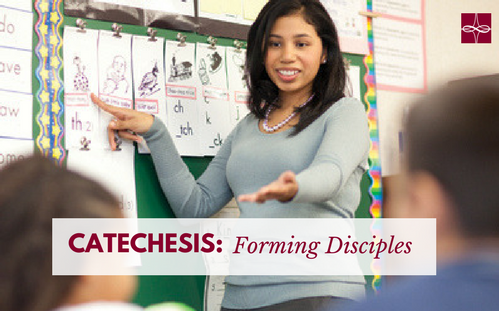

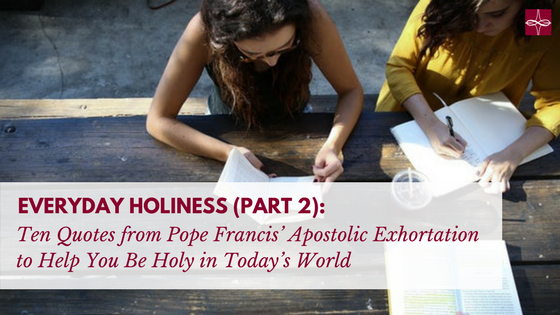

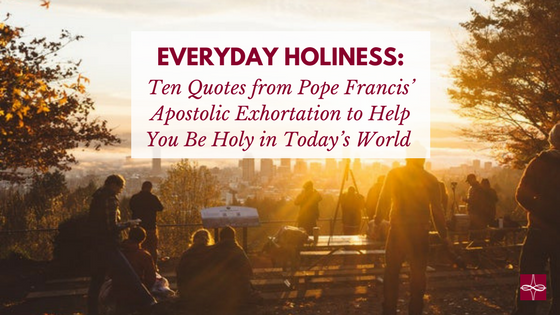

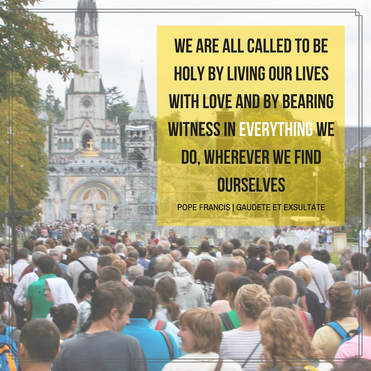
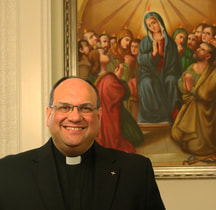
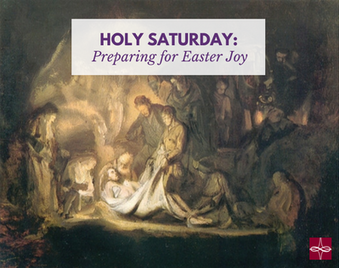



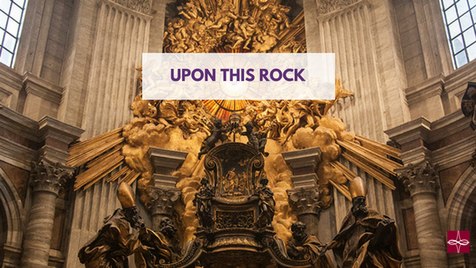

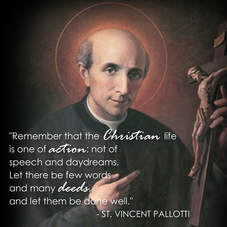
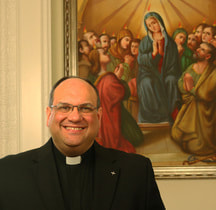
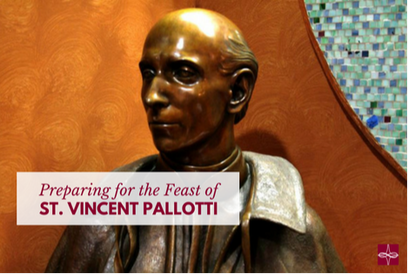
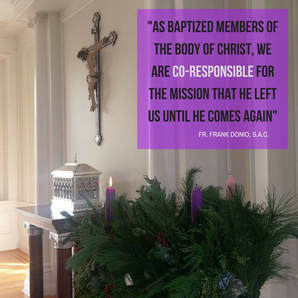
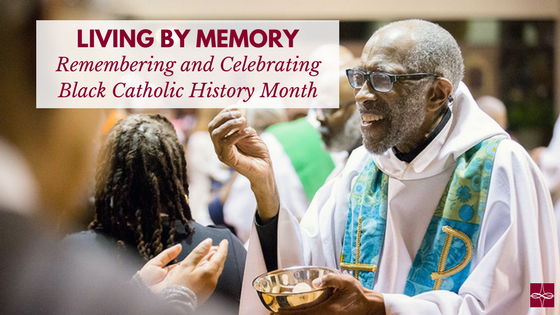
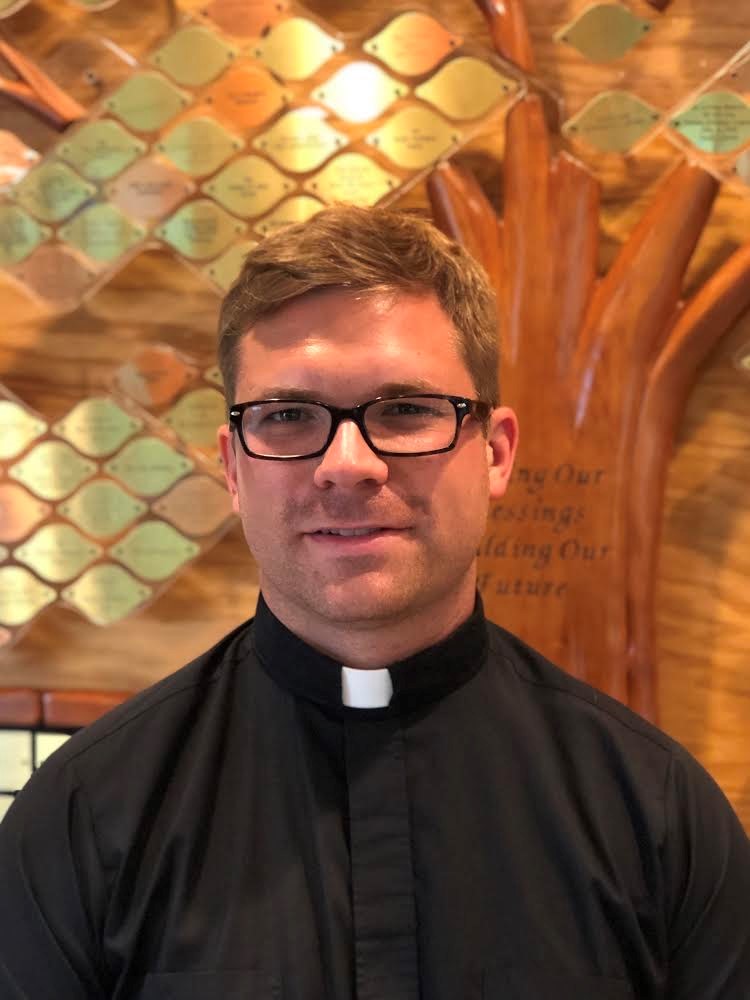


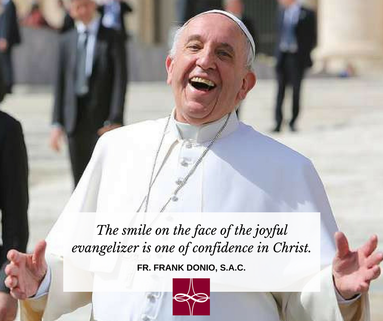
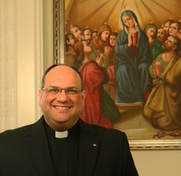
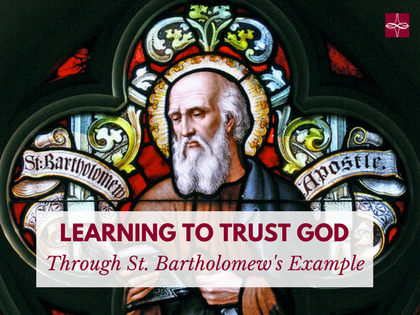

 RSS Feed
RSS Feed